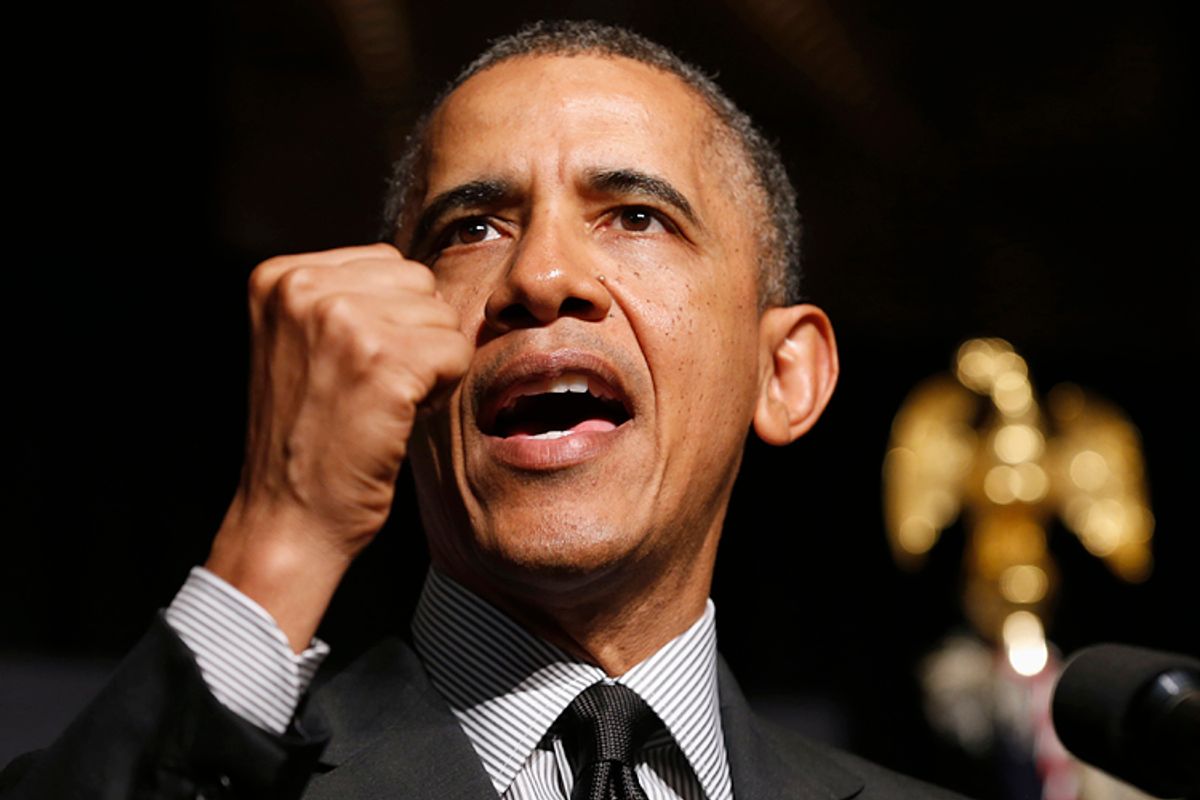In an assertive, no-nonsense move Monday, the White House announced guidelines for American colleges to aid in combating the increasingly visible problem of campus sexual assault. And perhaps the most encouraging aspect of the whole enterprise is its frank acknowledgement that the problem even exists.
The move comes in the wake of a series of high profile cases involving charges of sexual assault and indifferent college administrations, including a damning recent New York Times investigation of the bungling way an accusation of rape against Heisman winner Jameis Winston was handled at FSU. Earlier this year, Yale, which has faced serious criticism for its "sexual misconduct" policies, announced it had two reports of sexual assault within days of each other. Just last week, Central College controversially decided that a senior who was found responsible for "non-consensual sex" with another student could have his choice of his punishment. And this month Brown University offered a student who'd been suspended for "sexual misconduct that includes one or more of the following: penetration, violent physical force, or injury" the opportunity to re-enroll – though he subsequently announced he's withdrawing.
A White House task force formed this winter says that "one in five college students has been assaulted, but that just 12 percent of such attacks are reported" -- an unsurprising statistic given the lack of attention or seriousness accusers often face. Then there's the whole administrative not quite getting what rape is hurdle, often confused in a culture of socializing. In a fascinating Al Jazeera story last week, writer Claire Gordon revealed how colleges have been "rebranding" rape with terms such as "nonconsensual sex." As the CEO of the National Center for Higher Education Risk Management put it, school disciplinary groups would "get squeamish… The hearing board would say, 'We're not willing to label this guy a rapist.'" Princeton, for example, parenthetically explains in its regulations that non-consensual sex is "commonly referred to as rape." But hey, when you're recasting it as an act of sex gone wrong rather than assault, it's less icky, less likely to hurt a perpetrator's reputation. Everybody wins! Well, except the person who got raped.
The new government push will include deeper study of college sexual assault, a request for Congress to "enforce the recommendations and levy penalties for failing to do so" across school campuses, and resources like the newly launched NotAlone.gov, a destination "for students, schools, and anyone interested in finding resources on how to respond to and prevent sexual assault on college and university campuses and in our schools." It includes guidelines for schools to develop stronger assault policies and prevention strategies, and clear-cut information for students to understand their rights and get help. And it unflinchingly uses terms like "sexual violence," because that's what rape is.
In the past few years, a number of high profile cases have sparked a national conversation about sexual abuse in the military, and a movement to create a culture that's safer for everybody. With the new White House action comes the hope that the same energy can go to protecting students – male and female, gay and straight, and moving forward from the toxic environments that have added needlessly to the suffering of too many victims. Reform starts by defining the problem correctly, because you can't fight rape if you don't call it rape. As Vice President Biden said Monday, "Colleges and universities need to face the facts about sexual assault. No more turning a blind eye or pretending it doesn’t exist. We need to give victims the support they need, like a confidential place to go, and we need to bring the perpetrators to justice."



Shares